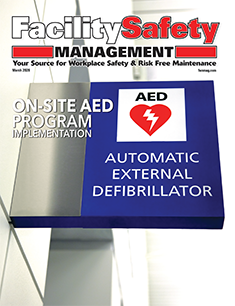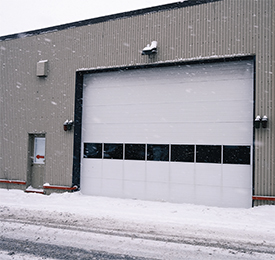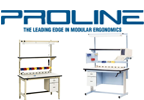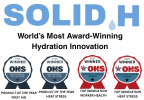March 2026
 |
Inside the March
|
The Cost of ‘Close Enough’
Material Handling Equipment
BY EMILY KEINATH
 If material handling equipment isn’t the right fit for your facility
or your employees’ tasks, the resulting workarounds can carry
both safety and financial consequences.
If material handling equipment isn’t the right fit for your facility
or your employees’ tasks, the resulting workarounds can carry
both safety and financial consequences.
“When equipment is only close enough, the gap gets absorbed
by your people. In material handling environments, that usually
shows up as extra force, extra movement, and added strain,” said
Justin Goins, Amigo’s national sales manager for material handling.
“Over time, those small inefficiencies can turn into risks and real
operational costs.”
When Equipment and Workflow Don’t Align
As facilities continue to evolve and modernize, oftentimes standard
material handling equipment doesn’t. Research shows that
when systems don’t match operational realities, employees consistently
develop workarounds to keep work moving.
Workarounds rarely appear because employees are careless or
resistant to change. More often, they emerge because equipment
and processes weren’t designed for the realities of the job. Over
time, those adaptations can quietly introduce physical strain, inconsistency,
and risk into daily operations, costs that compound
long before they’re visible on a balance sheet.
Workarounds, broadly defined as goal-driven adaptations employees
use to bypass obstacles when systems don’t fit real tasks,
can be found in any workplace setting. Research suggests that
workarounds and adaptations don’t fix an immediate block; they
can hide the fact that the system itself isn’t aligned with the work being done.
The Physical Impact in Material Handling
In material handling environments, that misalignment often
shows up physically. Repeated pushing, pulling, lifting, and repositioning
become part of the workaround itself, thus introducing
new safety risks while subtly increasing labor costs.
The Bureau of Labor and Statistics said overexertion and bodily
reaction are the leading cause of workplace injuries, accounting
for about 30 percent of lost-time cases. This includes injuries related
form push/pull tasks which drive those lost-time incidents,
as well as workers’ compensation claims and overtime to cover
absent employees.
“My team was pulling and tugging on 1,000 lbs. carts and it was
an extreme risk from an
ergonomic standpoint, Amigo carts have eliminated that threat
from our facility. From a safety perspective, motorized material
handling carts are invaluable,” said Ernie Fryer, safety manager at
Boride. Full story »
today's News
Pipeline Safety Authorization Act Can Help Prevent Billions in Infrastructure Damage
WASHINGTON, D.C. -- The U.S. House Committee on Energy & Commerce held an Energy Subcommittee hearing on the safety of America’s pipelines and energy infrastructure, including discussion of the Pipeline Safety Authorization Act of 2026.
“Women in Robotics 2026” Awarded by International Federation of Robotics
FRANKFURT AM MAIN, DE -- Global industrial robotics installations are forecast to surpass 700,000 units in 2028 – representing a compound annual growth rate of about 7 percent (CAGR, 2025-2028).
Tom Sellars Recognized with National Award
MILWAUKEE, WI -- Tom Sellars, CEO of Sellars Absorbent Materials, a Milwaukee-based manufacturer and marketer of wipes, absorbents and towel and tissue products, has been named to the MO 100 Top Impact CEO list.
OSHA Encourages Special Government Employees to Participate in New Safety Champions Program
FALLS CHURCH, VA -- OSHA has released additional information regarding its Safety Champions Program, part of the agency’s “Pathway to Safety & Health Excellence” announced last August at the Voluntary Protection Program Participants’ Association’s (VPPPA) 2025 Safety+ Symposium in St. Louis.
Werner Marks 10 Years of Partnership with the American Ladder Institute
ITASCA, IL -- Werner, a manufacturer of advanced climbing and fall protection products, marks its tenth consecutive year advancing ladder safety nationwide in partnership with the American Ladder Institute (ALI).








